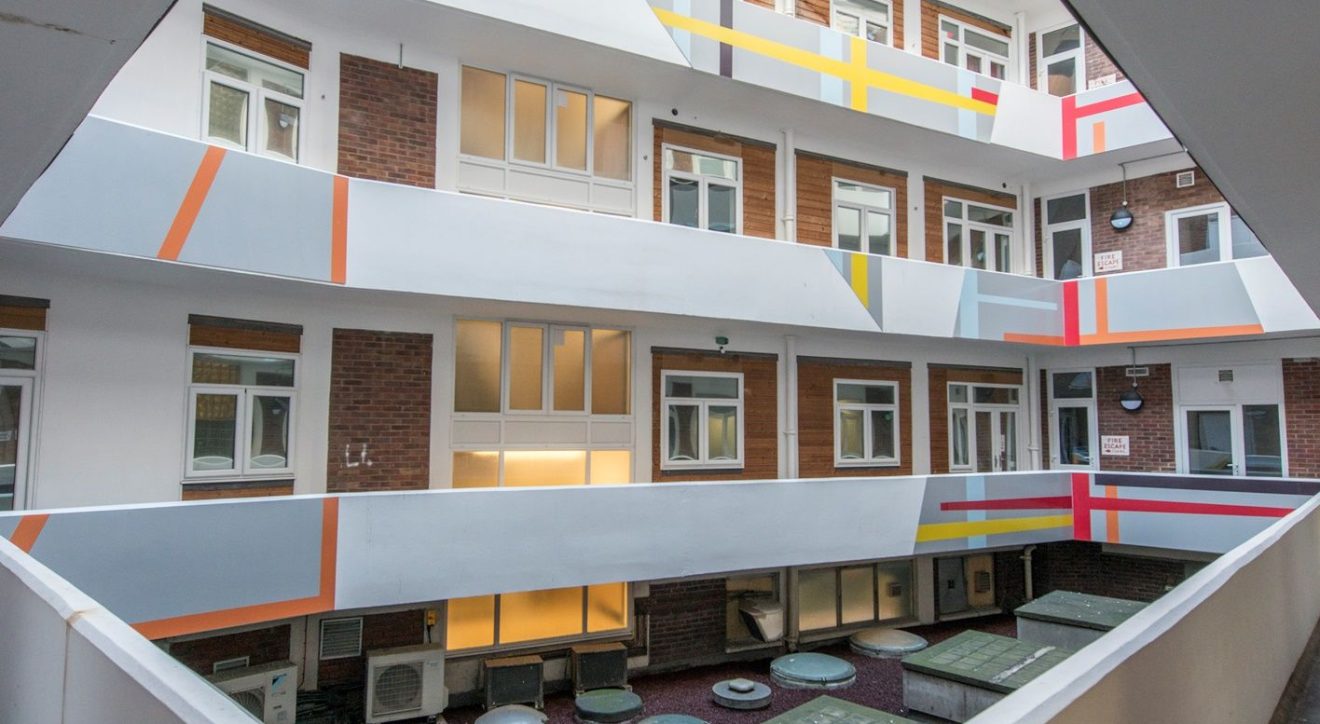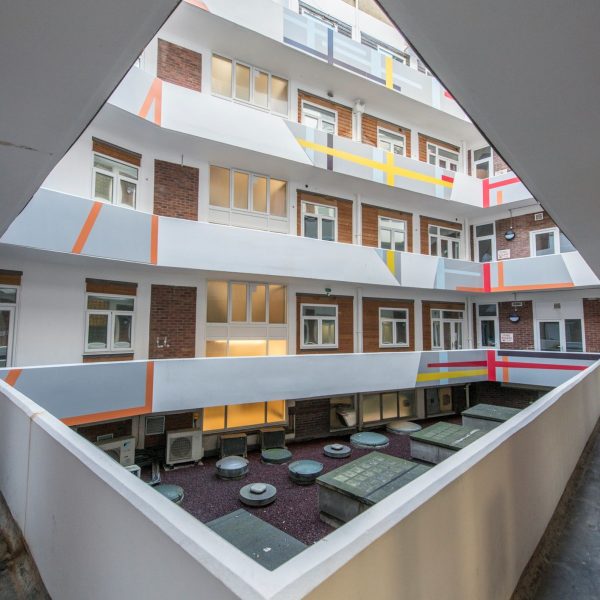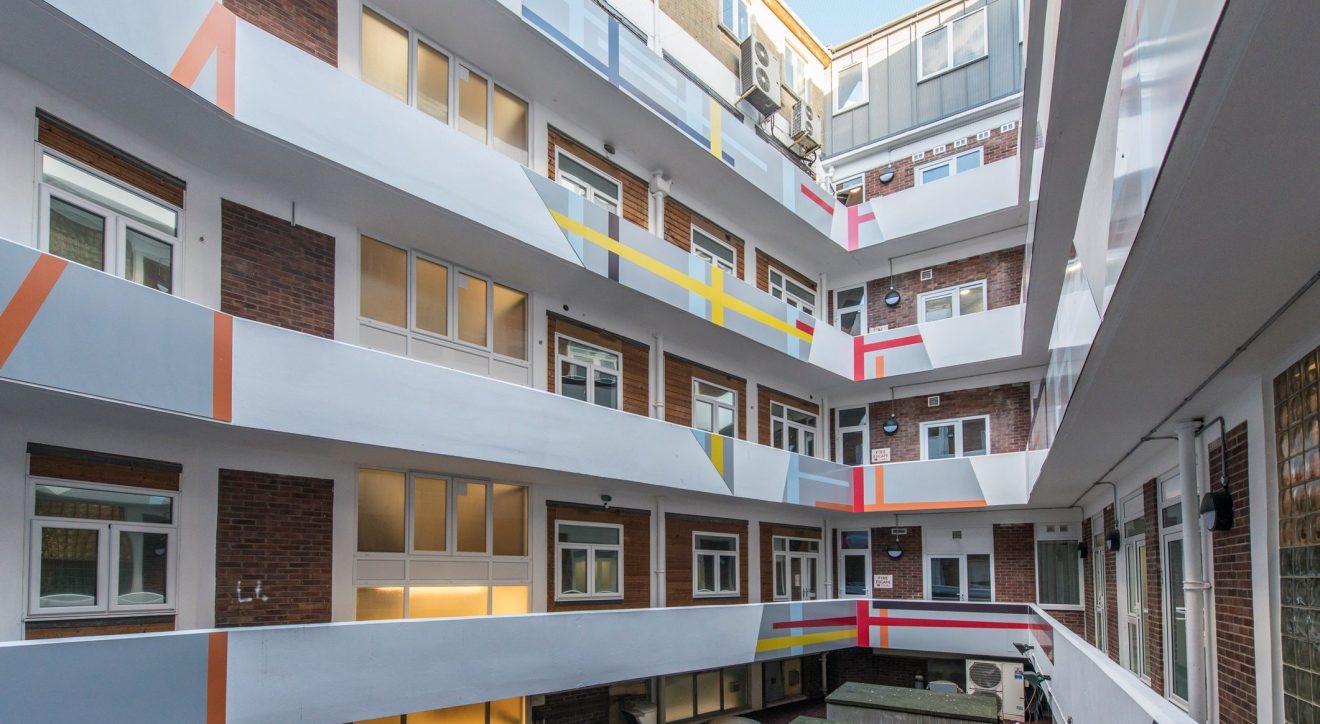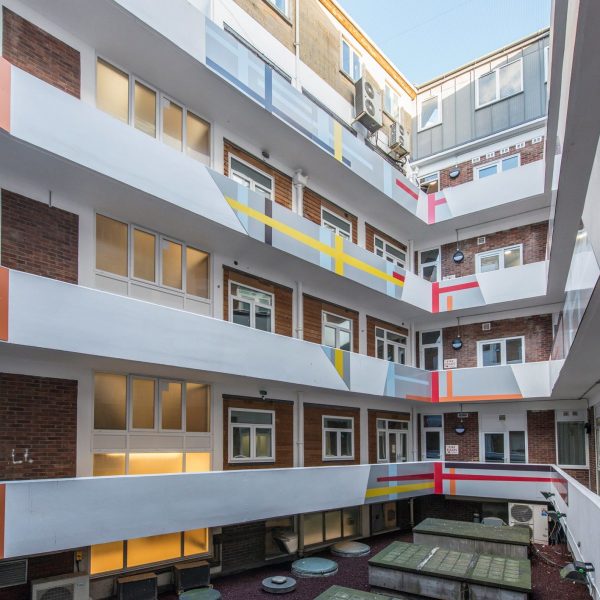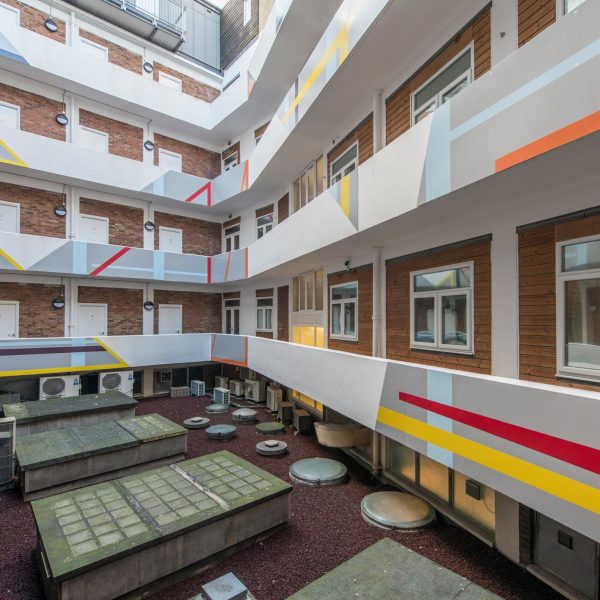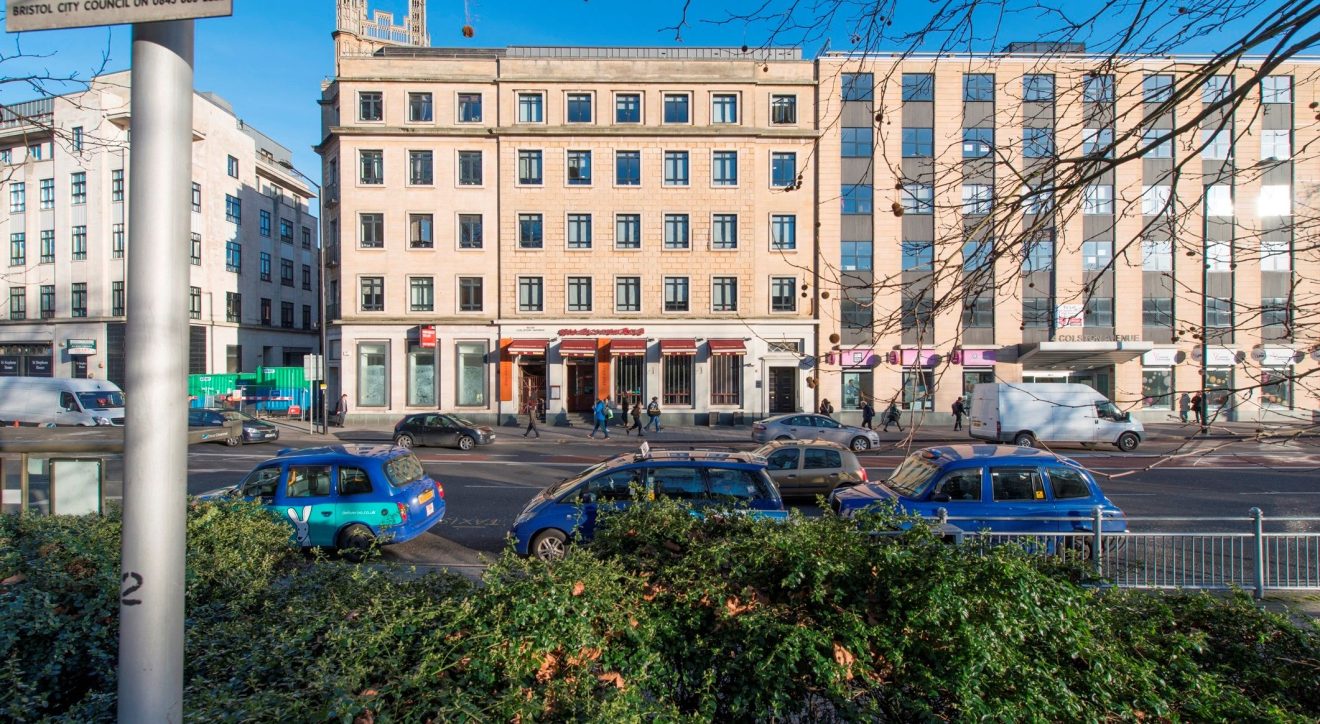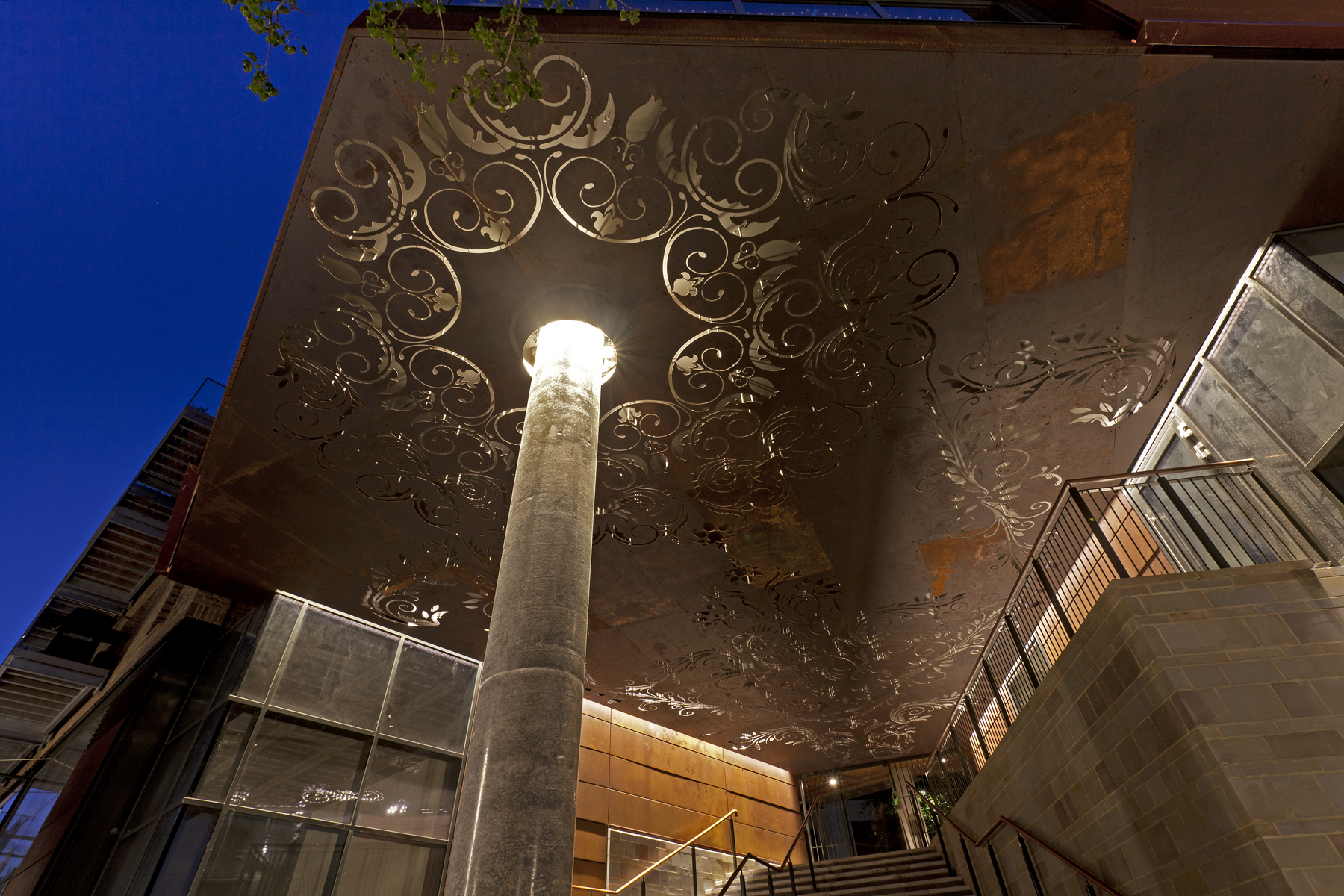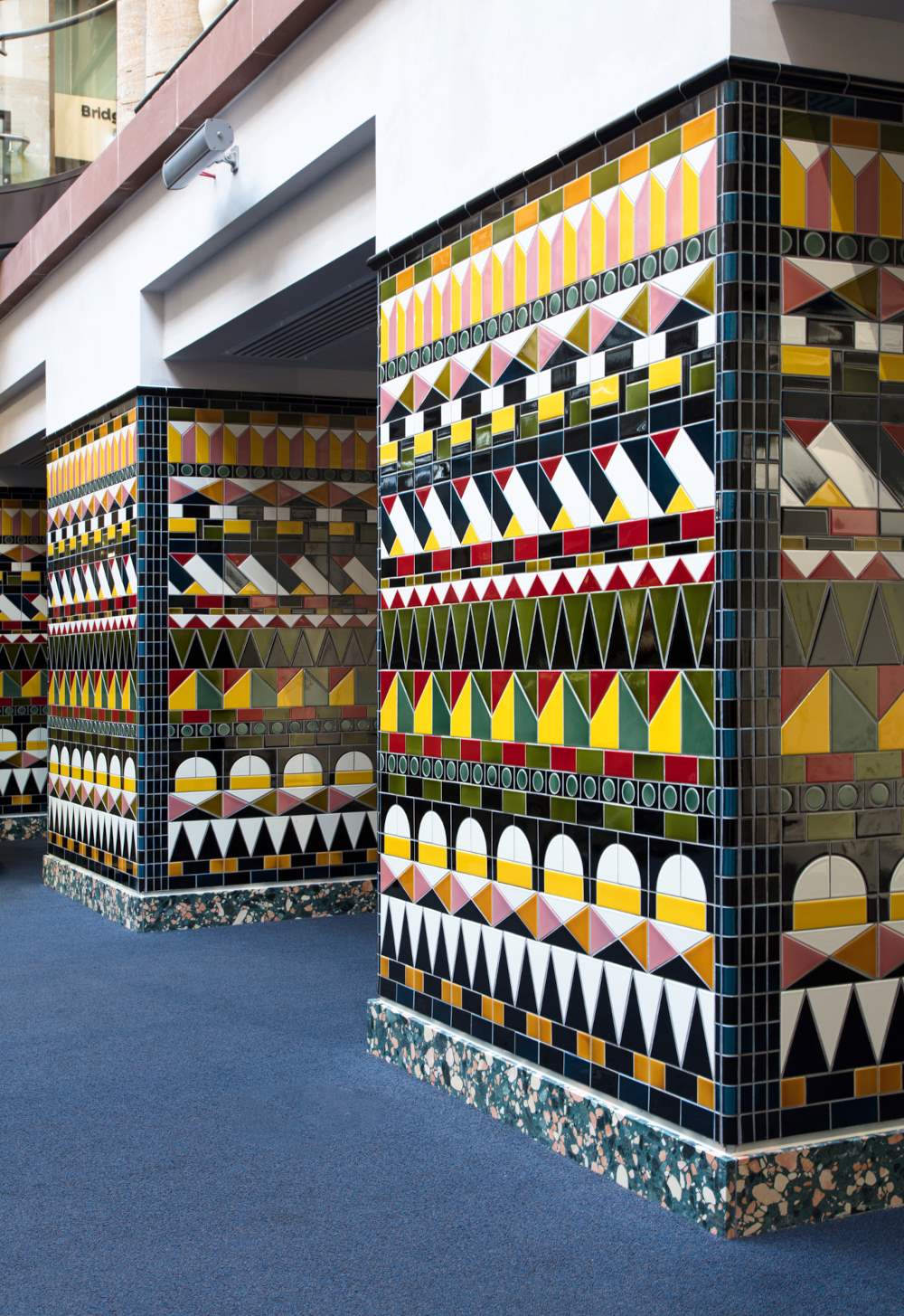
Synopsis
Focusing around a communal internal courtyard, and taking a cue from the nearby harbour setting, Bath based artist William Rounce was commissioned by Ginkgo Projects in 2014 to develop a new permanent artwork for 8-10 Colston Avenue. His work, which is an investigation into the mechanisms involved in the physical construction of a drawing, traverses 4 floors of a student housing scheme by Urban Creation Ltd, and features 42 individual stove enamelled aluminium panels.
Rounce’s intervention relates to the dimensions and proportions of the space they are created within, with a close interdependence with the architectural features of a given site. His work occupies a space between drawing and architecture, where issues of formalism such as shape, colour, line, surface and form are examined.
For the Colston Avenue work, Rounce worked within a set of parameters closely aligned and calibrated around the physical proportions of the building’s main internal courtyard. The artwork – which can be seen from multiple viewpoints – alters the perception of space, perspective and illusion, and its constituent elements converge to create imaginary planes that connect the balconies together. With its shifting perspectives the artwork reveals itself gradually, allowing residents to experience the space in a new and unfamiliar way.
The balconies are a key feature of the site’s architecture and have a dual purpose. Firstly, as a transient space, but also as an area for students and residents to reflect and socialise. The artwork seeks to create a sense of community and cohesion as the viewer becomes an active participant of the work.
‘The negotiation between the artwork and its setting is a relationship whereby the artwork both activates and is activated by the surrounding space’ Jack Brindley, There are two types of clarity, Apiary Studios (2011).
Through reflection and the push and pull of colour, there is a constant play between both the illusionistic and physical space. Spatial relationships are created between the positive and negative space of the design. Using a warm colour palette, bands of diagonal and horizontal colour ascend and descend across the full height of the balconies. Horizontal strips of colour transverse and wrap around the internal atrium, connecting and redefining the shape and proportions of the space.
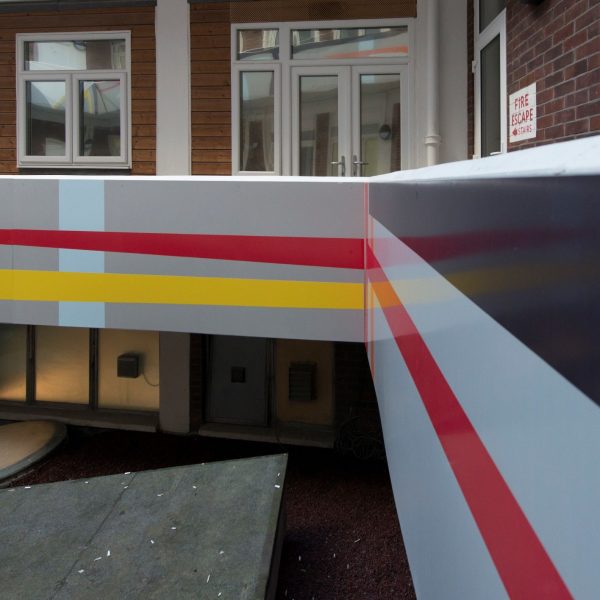
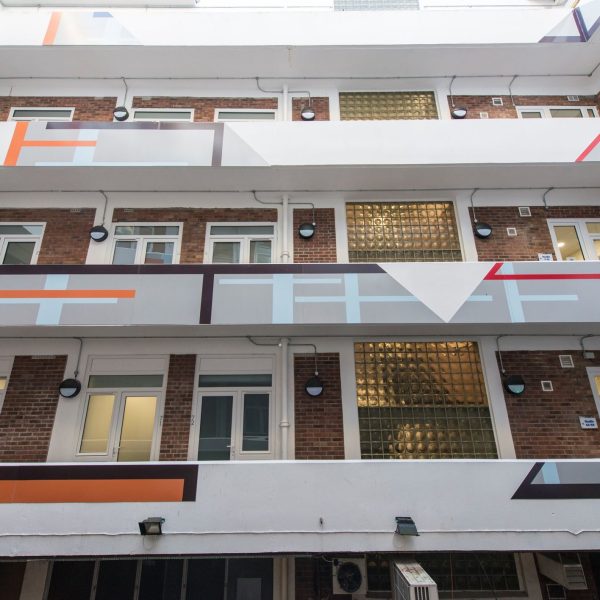
William Rounce was born in 1971 lives and works near Bath. Drawing in its various guises forms the basis of his practice. He works in a variety of media including drawing, installation and animation. Recent exhibitions include Drawn 2015, 2013 RWA, Bristol, Open Exhibition 2013: Drawing, Salisbury Arts Centre, Architectural Fragments- There are Two types of Clarity, Apiary Gallery, London, 2011 and Re:animate, Oriel Davies Open 2010.
Ginkgo Projects is an independent consultancy offering art curation and commissioning services to a wide range of clients. Our philosophy is driven by a desire to create unique opportunities for artists and designers. We aim to contribute fresh perspectives to built and natural environments that challenge assumptions about the spaces we inhabit.
Our clients include developers, local authorities, landscape and architectural practices and environmental and arts organisations. We create real opportunities for clients and artists to produce innovative work appropriate to the context, whether this is a new building or public space, work that is integrated into a space, stand-alone work or exhibition.
